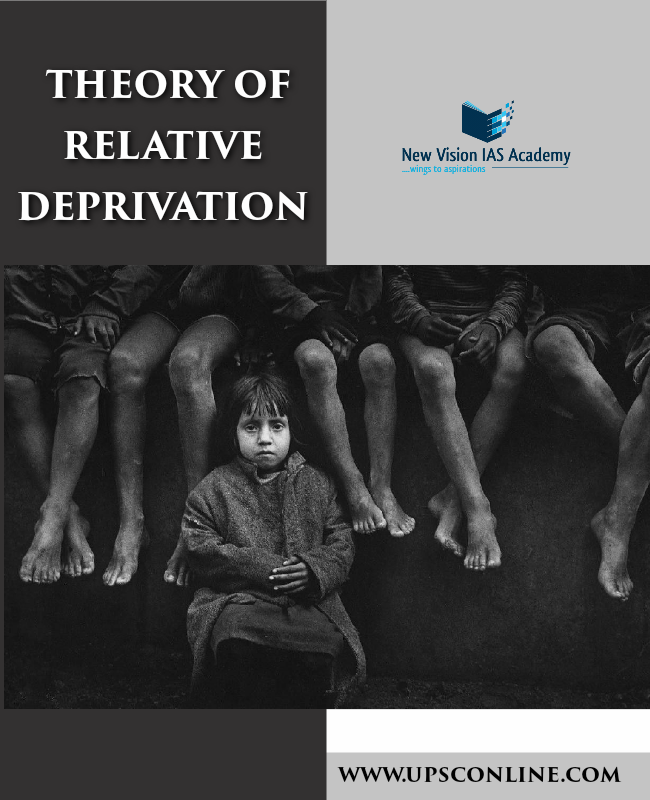THEORY OF RELATIVE DEPRIVATION
Relative deprivation is a measure of social poverty, often resulting in social isolation, limited social mobility, physical and mental stress, low self‐worth, and an effort–reward imbalance. Marx (1847) captures the intuitive appeal of relative deprivation (RD) as an explanation for social behavior. If comparisons to other people, groups or even themselves at different points in time lead people to believe that they do not have what they deserve, they will be angry and resentful.
Relative deprivation (RD) describes these subjective evaluations Whereas social psychological RD research has focused on intergroup and interpersonal (upward and contrasting) social comparisons, political science RD research has focused on people’s comparisons with past, future, desired and deserved selves
It was coined by Samuel Stouffer, a sociologist, during World War II to describe how we measure ourselves against the people immediately around us.
Our successes are always compared to their successes, as are our failures. Relative deprivation is a term used to describe the adverse effects of social inequality on physical and mental health, well‐being, longevity, and disability.
A new meta-analysis demonstrates that relative deprivation predicts a wide range of important outcomes, so long as it measures resentment with data from individuals and is paired with dependent variables of similar scope.
This refers to a theory of social change that attributes drastic events like social and political revolutions to the desire among a group of people within society to acquire the privileges that are enjoyed by other privileged groups.
In other words, social change is seen as the result of the feeling of deprivation or other forms of serious discontent experienced by a group of people.
Relative deprivation could be caused by economic or other social inequalities among various social groups. It is believed that group members who were earlier dispersed may find common ground in a cause that leads them to ignore their individual interests and unite under a single cause.
Our feelings of happiness or deprivation, success or failure, are not absolute, but rather relative to how happy and successful our neighbors are.
This is the relative deprivation theory. Countries in which citizens consider themselves the happiest (Switzerland, Denmark, Iceland, the Netherlands, and Canada) have a higher suicide rate than countries in which citizens consider themselves generally unhappy or neutral. If you’re depressed in a place where everyone around you seems happy, you feel worse.
However, if you’re depressed in a place where everyone around you also seems a little depressed, you feel normal and things aren’t so bad In the field of education, it is called as Big Fish-Little Pond Effect.”
When assessing their own academic abilities, students don’t compare themselves to every other student in the world. The more elite the school, the more negatively students perceive their own academic abilities.
Scoring 600 marks in Pune University brings a student to the top 10 ranks, while scoring that score in Harvard University is difficult or that score puts a student in last three positions. Therefore, choosing Pune over Harvard is the statistically smarter choice for increasing job prospects.
Relative deprivation and equity theory are the two major social psychological approaches to the study of felt distributive injustice .
“The extent of the difference between the desired situation and that of the person desiring it” .
– Runciman describes relative deprivation
Runciman’s idea was later extended by Easterlin (1974), who hypothesized that relative deprivation was responsible for the stagnation of growth in the proportion of the population that considered themselves happy, even as economic growth flourished .
- Some Of the questions
- What is relative deprivation theory in sociology?
- Who gave the theory of relative deprivation?
- How is poverty defined according to relative deprivation?
- How do you calculate relative deprivation?



0 Comments